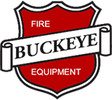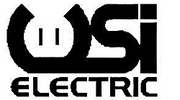- No products in the cart.
How To Select the Best Air Filter for Home Use
07
May
How To Select the Best Air Filter for Home Use
Not all air filters do the exact same thing, which is why it’s important to do your research when you’re choosing the best air filter for home use. In this article, we’ll go over what types of air filters are best for the common varieties of at-home airborne contaminants, as well as why having the right air filter is so important in the first place.
What to Consider When Choosing the Best Air Filter For Home
The best air filter for home use is the filter that is designed to address your specific needs and situation. High quality air filters are incredibly adept at reducing the concentrations of airborne contaminants in your house, including the ones that are most common in residential properties, such as:
- Dust
- Dirt
- Allergens, including pollen and dander
- Smoke
- Mold and mold spores
- Lint
- Bacteria
- Hair and fur
These contaminants should be top of mind when choosing an air filter. Other considerations include the additional benefits that a specific air filter can offer, such as being optimized for allergies, energy efficiency, or odors.
Different Air Filter Types
There are various air filter types, and all of them have unique benefits—and drawbacks. Here’s a quick breakdown.
HEPA filters: HEPA stands for high-efficiency particulate air, which is why these types of filters are highly recommended for those with allergies and/or respiratory difficulties. They can trap everything from pet dander to smoke, and are 99.97% effective at screening contaminants in the home.
Pleated filters: Pleated filters are made of cotton or polyester, and are quite good at filtering out airborne pollutants. That being said, they can be quite expensive, and are not ideal for energy efficiency.
Electrostatic air filters: These filters use an electrostatic charge to draw in airborne particles like dust and lint. They are often reusable and washable, and can typically be used in place of pleated filters since they are of relative size.
Fiberglass filters: These are the most affordable type of air filter, but they also have the lowest efficiency when it comes to screening contaminants. We recommend replacing fiberglass filters with something more efficient, especially if you have a respiratory condition.
UV filters: UV filters trap bacteria and viruses in the home and kill them with ultraviolet light. This is good news when it comes to keeping out harmful microorganisms, but does leave a gap insofar as filtering dust and other pollutants.
Making Sense of Home Air Filter Sizes
It’s just as crucial to consider home air filter sizes as it is to consider what a filter is primed to do. Air filters range in size from about 10” x 20” to 25” x 25” and in depth from 1” to 6”. There are no standard sizes to fit all furnaces, so you’ll need to look at the dimensions of the existing filter that you are replacing—or at your furnace manual—to see what will work best. You may also want to consult an air filter size chart prior to making a purchase so that you have a general guideline of the sizes that are commonly used.
Check MERV Ratings
Here is a quick “MERV ratings explained” lesson. MERV (Minimum Efficiency Reporting Value) is a measurement that essentially determines the effectiveness of your air filter using a scale between 1-16. The higher the MERV number, the less amount of particles and contaminants can pass through the pores on the filter. Most residential air filters have a MERV rating somewhere between 7-12, anything higher than that is usually found within hospitals and medical facilities.
It’s important to note that not all residential HVAC systems can handle a higher MERV rating. The smaller the pores in the air filter, the greater airflow resistance your system will experience. This can cause damaging pressure to your AC. Make sure you do some research first and determine which filter can work best with your system.
However, there are some circumstances where having a higher rated filter can seriously help purify the air in your home. If any of the following apply to you, it might be prudent to consider upgrading your filters:
- Family members with allergies could benefit from a higher graded filter to remove more dust, mold, and pollen particles
- Homes with a lot of pets could benefit from a higher MERV rating to help cut down pet dander from the air
- If you cook often, a filter with a high MERV rate can remove more smoke and carbon byproduct
- If your home contains hospice residents, having a higher quality filter can help remove bacteria that can be potentially harmful to those with weakened immune systems
Additionally, if you’re planning on upgrading your HVAC or furnace system you should also consider switching out air filters to something that’s rated higher and can provide better air quality.
Don’t Forget To Replace Your Filter!
Just as important as choosing the best filter is making sure that you replace it regularly. All those pollutants and microorganisms that get trapped in your filter build up over time, causing your furnace to work overtime and disrupting air flow in your home. Not replacing your air filter can also lead to serious (and costly) furnace engine damage. Get on a schedule so it’s part of your routine, making sure to note the replacement requirements of the particular air filter you chose.
At Wholesale Home, we sell everything you need for home improvement, all at affordable wholesale pricing—and that includes air purifier replacement filters and other HVAC parts. Shop today to find the best filter at the best price.





































